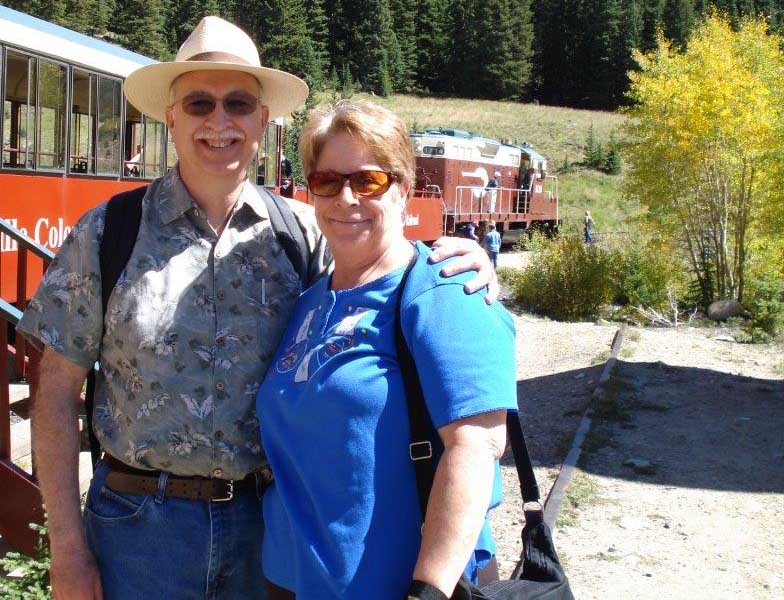Mesothelioma Survivor Credits Unconventional Treatment Plan

Ruth and Glenn Phillips were married in December more than 35 years ago, but they have celebrated their anniversary the past 17 years on July 1.
They celebrate life.
She is a mesothelioma survivor — one of the longest-living in America today — and a beacon of hope for those inspired by her take-charge, alternative medicine approach to treatment.
Staying alive hasn’t been easy, but they made it their shared passion after she was diagnosed with peritoneal mesothelioma on July 1, 1999.
“We celebrate every July that I’m still around, sending out cards and emails, just telling people I’m still alive,” she said from their home in Rome, Georgia. “It’s our anniversary, but just not the one most people think about.”
Ruth credits her longevity to good luck, considerable prayer and embracing nontraditional treatments that supplement the care she received for many years at the Immune Augmentative Therapy ( IAT) Centre in Freeport, Bahamas.
“I think it was fortunate that we happen to hit on something that worked,” she said. “People should know you don’t have to die right away from this. Focus on living with cancer, instead of dying from cancer.”
Her philosophy in treating mesothelioma, almost from the start, has been about optimizing and super-charging her own immune system to fight the cancer, creating an environment that makes it difficult for the cancer to thrive.
Staying Alive Is a Full-Time Job
She gets three to four daily shots of the serum from IAT. She loads up with immune-system strengtheners and antioxidants, and she takes mega doses of several vitamins and herbs. She also relies on homeopathic medicine.
Ruth sees a holistic doctor for nutritional and intravenous injections, a therapist for emotional clearing to relieve stress and a chiropractor for body alignment. She also undergoes regular electrodermal screening, which identifies chemical imbalances within the body, and then adjusts her intake of supplements accordingly.
“This is kind of like a full-time job, just staying alive. Take this stuff, that stuff, do this, do that. It really never ends,” she said with a sigh. “But that’s how it is when you’re trying to cohabitate with cancer. People are living a long time now with cancers that would have killed them years ago. I just try and think of it like a chronic disease, like diabetes, that I have to deal with.”
Glenn has been alongside her for every step.
When she was first diagnosed in 1999, they traveled to major cancer centers in Atlanta, New York and Washington for second and third opinions. She received much the same prognosis at each stop, 8-12 months to live, and was offered only toxic chemotherapy to slow down the cancer’s progression.
Ruth didn’t buy it. Instead, they went to Freeport after hearing about this unconventional and controversial IAT Centre that had been operating since 1977 outside of any FDA regulations.
Revitalizing Your Immune System
The center’s theory was about restoring and revitalizing the body’s immune system to fight the cancer. It worked for Ruth.
Therapies involved daily injections of a protein mixture made from the blood of healthy donors and individualized to a person’s own immune system. They would leave each time with months of serum to continue the injections at home.
Over a period of 17 years, they made 26 trips to Freeport and spent approximately 360 days there — all in the name of staying alive.
But poor management, a changing philosophy, an aging staff and continued skepticism by the medical establishment shut down the Freeport center. Fortunately, though, Ruth was provided with enough serum to last her another 10 months.
“[The closing] is sad because I don’t have anywhere to send someone [with mesothelioma] now if they ask me,” she said. “I’ve always tried to stay away from traditional treatments because people just don’t do well with them. Chemotherapy doesn’t work. I just hope something else pops up before I run out of serum.”
Although Ruth continues defying the odds, it has not been an easy road. She has had serious complications in recent years.
She almost died from peritonitis, an inflammation of the lining around the abdomen. She has also been in and out of the hospital several times for various abdominal problems related to her mesothelioma.
Yet life continues.
“Cancer is a scary word to a lot of people. Their first thought is ‘cut it out, burn it out, get it out of me.’ But those treatments might not be in your best interest long term,” she said. “My thing is, since you can’t seem to eradicate mesothelioma, just try and make it behave. Make your body a place where cancer doesn’t want to live there, make it a poor terrain for cancer to survive.”
No Easy Road Ahead
She laments that fact that half of her married life (35 years) has been spent dealing with her mesothelioma. Ruth credits Glenn for his unwavering support. She apologizes. He makes her stop.
“It’s almost like my husband has a second job, just keeping me alive.” she said. “I’ve been fortunate to have a very supportive mate, a mature, loving person and a great sidekick. I’ve seen patients try to do this alone. It doesn’t work.”
The closing of the IAT Centre makes her future uncertain, but she has lived with that uncertainty many years. Most of her treatments have not been covered by health insurance but by the legal settlement money she received years ago.
Her exposure to asbestos fibers, which caused the mesothelioma cancer, was traced, in part, to her father’s work at Union Carbide and the household products he regularly brought home from the plant.
“It’s been a rollercoaster ride,” she said. “I’m full of scar tissue. A lot of parts have been shifted, removed or glued together. I’ve told my husband, some days I’m just so tired of this. And he is, too.
“But then we move on. And we look forward to our next anniversary together.”